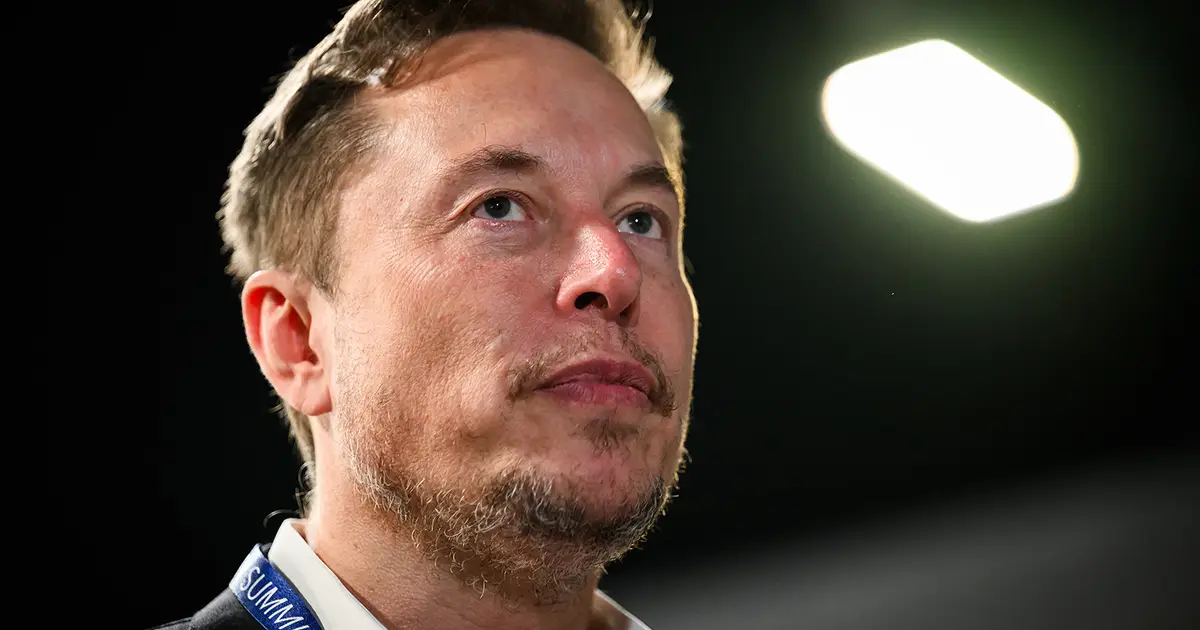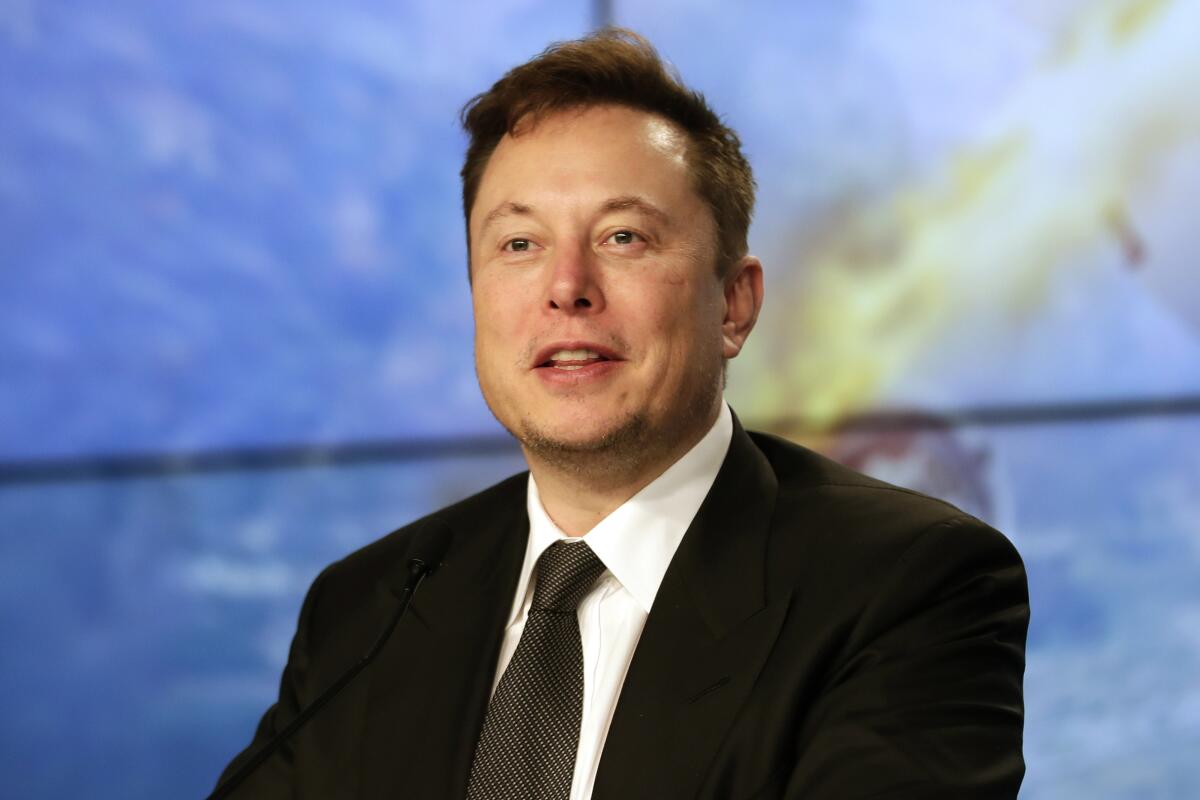Musk Foundation Invests $480,000 in Water Filtration

Musk Foundation Invests $480,000 in Water Filtration: A Commitment to Global Water Access
1. A $480,000 Commitment to Clean Water: Musk Foundation’s Latest Philanthropic Venture
In a major move to address the global water crisis, the Musk Foundation has pledged a significant $480,000 investment into water filtration technologies. This funding aims to improve access to clean drinking water for communities in need, particularly in regions where water scarcity and contamination are prevalent. The Musk Foundation’s latest philanthropic endeavor marks another key step in Elon Musk’s ongoing efforts to tackle pressing global challenges through technological innovation and strategic investments.
Water filtration is a critical issue worldwide, especially in developing countries where millions of people lack access to clean water. According to the World Health Organization (WHO), over 2 billion people worldwide live without access to safely managed drinking water. This problem is exacerbated by climate change, which has caused water sources to become increasingly polluted, leading to a rise in waterborne diseases. The investment by the Musk Foundation is aimed at addressing this crisis by supporting the development and deployment of advanced water filtration systems that can provide safe, clean water to underserved communities.
Elon Musk, known for his groundbreaking work with Tesla, SpaceX, and other high-tech ventures, has increasingly focused on using his resources to address environmental and humanitarian issues. His commitment to addressing the water crisis is in line with his broader vision of improving global living conditions and tackling environmental challenges head-on.
“We recognize that clean water is a basic human right, and we are committed to supporting innovative solutions that can help deliver clean drinking water to the millions of people who currently don’t have access to it,” Musk said in a statement. The investment is expected to have far-reaching impacts, particularly in areas where access to clean water is limited or unreliable.
2. The Global Water Crisis: Understanding the Urgency of Clean Water Access
The global water crisis is a rapidly growing issue that affects millions of people worldwide. Lack of access to clean and safe drinking water is a leading cause of death and disease, particularly in low-income and rural areas. According to UNICEF, waterborne diseases such as cholera, dysentery, and typhoid fever kill more than 840,000 people each year, many of whom are children under the age of five. Beyond health, the water crisis also has significant economic implications, as communities without reliable access to clean water often face challenges in agriculture, industry, and education.
The contamination of water sources is a primary factor contributing to the global water crisis. Industrial pollution, agricultural runoff, and improper waste disposal are just a few of the ways in which water sources become contaminated. In many parts of the world, especially in developing countries, water purification systems are either outdated or nonexistent, leading to the widespread use of unsafe drinking water. In these areas, people often have no choice but to rely on water that is tainted with harmful pathogens and chemicals.
Climate change has only exacerbated these issues. Changing weather patterns, including more frequent droughts and floods, have made water resources less predictable and accessible. As glaciers melt and water tables deplete, communities that once relied on reliable water sources are now facing shortages. This has created an urgent need for innovative solutions that can provide clean, accessible, and sustainable sources of drinking water.
Musk’s $480,000 investment into water filtration technology aims to help address some of these issues. The funding will support the development and distribution of advanced filtration systems capable of removing contaminants and making water safe to drink. By investing in these technologies, the Musk Foundation is helping to tackle the root causes of water scarcity and contamination, providing communities with the tools they need to secure clean water for years to come.
3. The Technology Behind Water Filtration: How Innovation Can Solve the Crisis
The $480,000 investment from the Musk Foundation will go toward the development and deployment of innovative water filtration systems that leverage cutting-edge technologies. These filtration systems will use a combination of physical, chemical, and biological processes to remove contaminants from water, making it safe to drink. Some of the most promising filtration technologies include reverse osmosis, ultraviolet (UV) light purification, biofilters, and nanotechnology-based filters.
Reverse osmosis (RO) is one of the most common and effective filtration methods used to remove dissolved solids, bacteria, and other impurities from water. This process uses a semi-permeable membrane to separate contaminants from water, leaving behind clean, purified water. RO systems are already widely used in desalination plants to turn seawater into fresh drinking water, and they have the potential to be deployed in smaller-scale solutions for rural communities.
Another promising technology is UV light purification, which uses ultraviolet light to disinfect water by destroying harmful bacteria, viruses, and pathogens. This method is particularly effective in areas where the primary concern is biological contamination. UV purifiers are easy to use and do not require chemicals, making them an ideal solution for households and small communities in need of safe drinking water.
Biofilters, which use natural filtration processes involving plants and microorganisms, are also gaining attention for their low-cost, sustainable approach to water purification. These filters rely on the natural filtration capacity of certain plants and microorganisms to remove contaminants from water. Biofilters are especially useful in rural areas where access to advanced filtration systems may be limited.
Finally, nanotechnology-based filters represent a revolutionary approach to water purification. These filters use nanoscale materials to target and remove specific contaminants, including heavy metals and organic pollutants. Nanotechnology-based filters are highly efficient and can be tailored to remove a wide range of contaminants from water.
The $480,000 investment from the Musk Foundation will help fund the development of these and other innovative filtration technologies, allowing them to be tested and deployed in communities that need them most. By focusing on scalable, sustainable solutions, the Musk Foundation aims to ensure that clean water is accessible to everyone, regardless of location or economic status.
4. The Broader Impact: Advancing Social Responsibility and Corporate Philanthropy
Elon Musk’s $480,000 donation to support water filtration technology is not just about providing clean water to underserved communities—it’s also a demonstration of the growing role that the private sector can play in addressing global humanitarian and environmental challenges. While governments and international organizations have long been at the forefront of solving the world’s water crisis, the involvement of private companies and philanthropists like Musk is becoming increasingly important.
Musk’s approach to philanthropy has always been focused on using technology and innovation to solve complex problems. His investments in electric vehicles, solar energy, and space exploration are all aimed at addressing global challenges in ways that are both scalable and sustainable. With this latest water filtration initiative, Musk is applying the same philosophy to one of the world’s most pressing issues: access to clean water.
The impact of Musk’s donation goes beyond just the immediate benefits of providing clean drinking water. By supporting innovative water filtration technologies, the Musk Foundation is helping to lay the groundwork for long-term solutions that can be adopted by governments, NGOs, and businesses around the world. The funding will enable the development of new filtration technologies that can be deployed in areas where traditional infrastructure is lacking, providing a sustainable and cost-effective solution to water scarcity.
Musk’s focus on water filtration also highlights the broader trend of corporate social responsibility (CSR), where companies are increasingly taking an active role in addressing global issues. As the world faces interconnected challenges like climate change, resource depletion, and economic inequality, corporate philanthropy is playing an increasingly vital role in finding solutions. Musk’s donation is an example of how business leaders can use their resources to create positive social change, and it sets a precedent for other tech entrepreneurs and corporations to follow.
By investing in water filtration, Musk is helping to create a world where access to clean water is no longer a privilege for the few, but a basic human right available to all. The $480,000 donation may be just the beginning of a much larger effort to ensure that clean water becomes accessible to everyone, regardless of where they live or how much they can afford.




